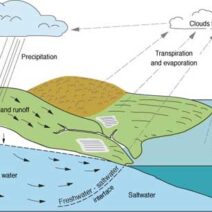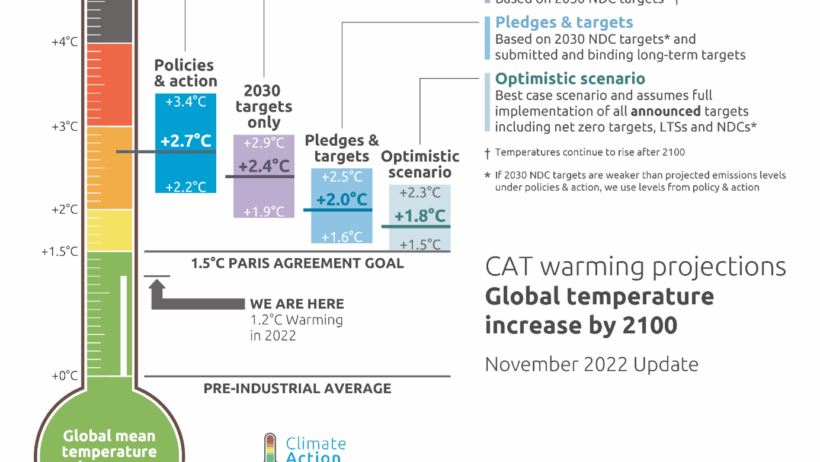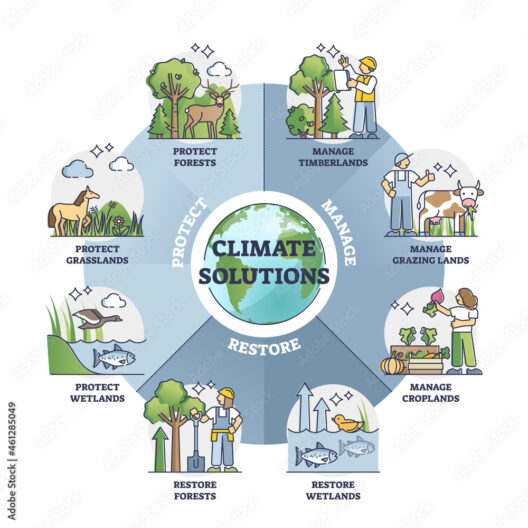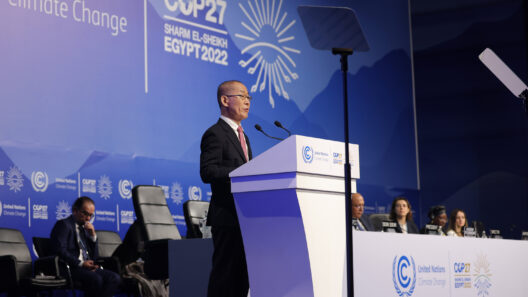As we traverse the tumultuous landscape of our contemporary environment, a nagging question provokes contemplation: Are we, as a society, experiencing a collective mental upheaval triggered by the insidious progress of climate change? Global warming anxiety, an increasingly prominent phenomenon, has melded itself into the fabric of our daily lives. This evolving emotional landscape necessitates an exploration of the intricate relationship between mental health and environmental degradation. What implications does this have for our societal fabric, and how can we navigate the mental challenges posed by our warming world?
To commence, it is pivotal to delineate the essence of global warming anxiety. Characterized by feelings of apprehension, dread, and overwhelming hopelessness regarding environmental destruction, this mental state emerges from the relentless barrage of distressing news and scientific predictions concerning climate change. The juxtaposition of alarming data and our inherent instinct for survival intertwines, inducing a state of psychological malaise. According to recent studies, this anxiety can manifest in a spectrum, from mild concern to debilitating distress, impacting individuals across all demographics.
The roots of this phenomenon can be traced to various catalysts. The media, with its relentless focus on dire climate scenarios, serves as a ubiquitous conduit of information that often amplifies fear rather than fostering a sense of agency. Each report detailing rising sea levels or extreme weather events may heighten already existing anxieties. Moreover, the phenomenon of eco-anxiety—combined with a feeling of helplessness regarding the substantial decisions that governments and corporations make—creates a formidable psychological burden. It poses an essential question: Are we, indeed, mere spectators to a crisis that feels insurmountable?
Interestingly, anxiety regarding ecological matters may burgeon in the context of existential threats. The ongoing climate crisis isn’t simply a question of rising temperatures; it symbolizes a tipping point where fundamental aspects of life—the viability of future generations, biodiversity, and planetary health—hang in the balance. Herein lies a potential dichotomy: while the impending doom can paralyze us with fear, it can simultaneously ignite proactive behavior and collective mobilization. However, how can we reconcile these feelings effectively, harnessing them for constructive action rather than detriment?
Moreover, the implications of global warming anxiety can penetrate various aspects of life. Social interactions, academic pursuits, and workplace productivity can all succum to the effects of climate dread. Young generations, particularly, find themselves grappling with what has been termed “solastalgia”—a sense of loss and dislocation in a rapidly changing environment. This psychological malaise can be especially pronounced as younger individuals feel the weight of uncertainty looming over their futures, prompting a profound dialogue about mental health in the context of climate action.
In academia, researchers are increasingly turning their lenses toward the psychological impacts of climate change. Some investigations suggest that environmental education initiatives could alleviate eco-anxiety by empowering individuals with knowledge—turning passive observers into active participants in environmental stewardship. However, the challenge remains: how can we cultivate resilience in a world where ecological despair thrives?
Moreover, the social ramifications of global warming anxiety warrant serious consideration. The prevalence of eco-anxiety can breed divisions among communities. Some may retreat into apathy, overwhelmed by the crisis’s scale, while others engage in fervent activism, advocating for structural changes and sustainable practices. This polarization can lead to fragmentation, which does not bode well for collaborative solutions to the environmental challenges we face.
Confronting global warming anxiety demands an evolution in our thought processes. We can begin by reframing the narrative surrounding climate change. Instead of fixating solely on doom-laden forecasts, it is essential to uplift stories of resilience, adaptation, and innovation. Narratives of communities coming together to develop sustainable solutions can instill hope, reminding individuals that collective action can yield tangible outcomes.
An additional pathway to mitigation may involve a robust emphasis on mental health resources. Support systems, counseling, and safe spaces for dialogue can empower individuals to articulate their fears and anxieties without judgment or stigma. By fostering open conversations about these feelings, the specter of global warming anxiety can transform into a catalyst for constructive change. It is crucial to validate these emotions while also fostering a proactive, solutions-oriented mindset.
Furthermore, engaging in outdoor activities and nature-based therapies can bolster psychological well-being. Reestablishing connections with nature fosters an intrinsic appreciation of the environment, which can alleviate some aspects of anxiety. Activities such as community gardening, afforestation projects, or eco-therapy can create avenues for individual healing while simultaneously facilitating environmental stewardship.
Lastly, it is incumbent upon policymakers and organizations to acknowledge and address the psychological toll of climate change. Integrating mental health frameworks into environmental policies can ensure that individuals feel supported as they navigate ecological crises. When governments and institutions promote holistic approaches that encompass both physical and mental well-being, a broader, more inclusive strategy emerges to tackle global warming anxiety.
In conclusion, grappling with global warming anxiety highlights a considerable challenge in an era marked by ecological upheaval. By embracing this dysfunction and integrating mental health strategies into broader climate action, a pathway emerges that not only recognizes the psychological impacts of climate change but also utilizes them as a potent force for change. So, can we channel our anxiety into positive action, transforming dread into determination? The answer lies within us all—whether we succumb to despair or rise to the challenge presented by our warming world will ultimately dictate the legacy we leave for future generations.








